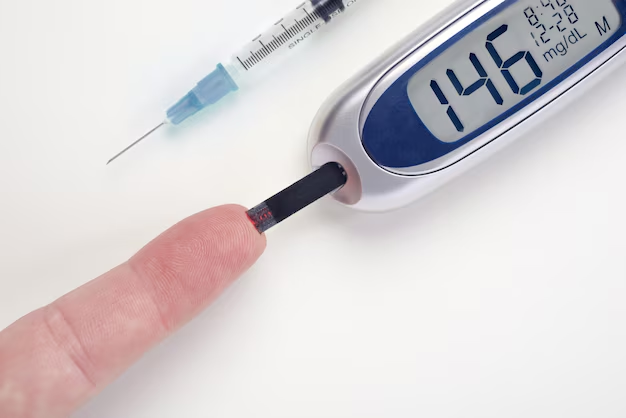Your Guide to What Glucose Level Is Diabetic
What You Get:
Free Guide
Free, helpful information about Diabetes FAQ and related What Glucose Level Is Diabetic topics.
Helpful Information
Get clear and easy-to-understand details about What Glucose Level Is Diabetic topics and resources.
Personalized Offers
Answer a few optional questions to receive offers or information related to Diabetes FAQ. The survey is optional and not required to access your free guide.
Understanding Diabetic Glucose Levels: What You Need to Know
Diabetes is a condition that affects millions worldwide, yet it remains shrouded in mystery for many. A common question that arises is, "What glucose level is considered diabetic?" Understanding this is crucial not only for those with a predisposition to diabetes but also for anyone aiming to maintain optimal health.
Defining Diabetic Glucose Levels
The diagnosis of diabetes primarily hinges on blood sugar measurements. To be more precise, there are key thresholds to understand:
Fasting Blood Sugar Test:
- Normal: Less than 100 mg/dL
- Prediabetes: 100 to 125 mg/dL
- Diabetes: 126 mg/dL or higher on two separate tests
Oral Glucose Tolerance Test (OGTT):
- Normal: Less than 140 mg/dL
- Prediabetes: 140 to 199 mg/dL
- Diabetes: 200 mg/dL or higher after two hours
A1C Test (which provides an average blood sugar level over about three months):
- Normal: Below 5.7%
- Prediabetes: 5.7% to 6.4%
- Diabetes: 6.5% or higher on two separate tests
These numbers are vital as they can guide when and how an individual might need to adjust their lifestyle or begin treatment.
Managing a Diabetes Diagnosis
Once diagnosed, it might feel daunting, but managing diabetes is both possible and, with the right tools, more accessible than ever. Nutrition, exercise, medication, and regular monitoring of blood sugar levels form the cornerstone of diabetes management.
Beyond lifestyle changes, there are numerous resources available to help with the financial burden of diabetes care. In fact, several programs and options can offer relief and support to those grappling with this lifelong condition.
Exploring Financial and Educational Resources
Understanding where to find resources is critical. The costs associated with diabetes can be overwhelming, but thankfully, there are several avenues to explore:
Government Aid Programs: Medicare and Medicaid often cover part of the costs associated with diabetes management. Explore eligibility to benefit from these programs.
Financial Assistance for Medications: Many pharmaceutical companies offer assistance programs or discounts for diabetes medications and supplies.
Debt Relief Options: Programs are available to consolidate or reduce medical debts, making it easier to manage finances without sacrificing care.
Credit Solutions for Medical Costs: Some healthcare credit providers offer low-interest or interest-free financing options for medical expenses.
Educational Grants and Workshops: Numerous organizations provide educational resources, workshops, and support groups designed to help manage diabetes more effectively.
Empowerment Through Awareness
Becoming informed about diabetes begins with understanding the blood sugar levels that define the condition. However, moving beyond that, knowing about and utilizing financial assistance and educational opportunities can alleviate much of the stress associated with managing diabetes.
By taking advantage of these resources, individuals can focus more on their health and less on the burdens that diabetes may present. Knowledge and support can indeed be powerful allies in the journey to maintain balanced and healthy blood sugar levels.
Resources at a Glance 📝
- Medicare & Medicaid: Explore eligibility for diabetes-related coverage.
- Pharmaceutical Assistance Programs: Check with medication providers for available discounts.
- Debt Consolidation Services: Options to manage and reduce medical debts.
- Healthcare Credit Solutions: Financing for medical costs.
- Diabetes Education Workshops: Learn effective management strategies.
By remaining informed and proactive, you can not only understand the glucose levels that indicate diabetes but also take control of the resources available to manage it effectively.
What You Get:
Free Diabetes FAQ Guide
Free, helpful information about What Glucose Level Is Diabetic and related resources.

Helpful Information
Get clear, easy-to-understand details about What Glucose Level Is Diabetic topics.

Optional Personalized Offers
Answer a few optional questions to see offers or information related to Diabetes FAQ. Participation is not required to get your free guide.


